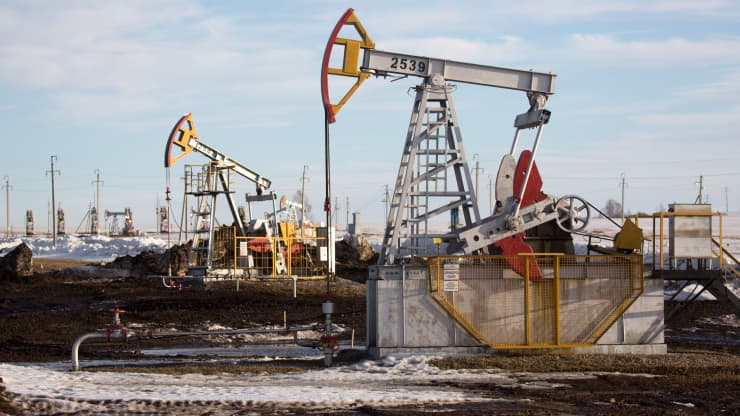© 2020 All rights reserved to Maaal Newspaper
Publisher: Maaal International Media Company
License: 465734
Sanctions on Russian oil… How will Europe deal with deficit?
Will shale oil become part of the solution to Europe’s energy supply problem? After the G7 countries and Australia agreed a few days ago to impose a maximum price per barrel of Russian crude oil transported by sea at $60 per barrel, in a move aimed at limiting Moscow’s revenues while preserving the flow of Russian oil to global markets.
Moscow said that it would not sell its oil under this ceiling and that it was studying the situation to respond
OPEC decision:
The “OPEC+” group decided to stick to its goals related to oil production at its meeting yesterday, Sunday, at a time when oil markets are struggling with the impact of the Chinese economy’s slowdown on demand and the repercussions of the G7’s decision to put a price ceiling on Russian oil on supply.
While there were other expectations that the ministers of the “OPEC Plus” alliance might approve larger cuts in oil production during their meeting, in order to limit the effects of tightening sanctions against Russia on the markets, including the European Union’s decision to impose a price ceiling.
Europe is in trouble:
Earlier this year, US shale oil chiefs warned Europe that “there is no bailout coming,” indicating that they could not increase oil and gas supplies in time to stop the winter energy crisis.
Expectations of rising prices:
These warnings come amid fears that the decline in Russian exports will lead to a rise in crude oil prices again above $100 a barrel.
In the context, US Treasury Secretary Janet Yellen warned last September that the Russian oil embargo that will enter into force “may cause a rise in oil prices.”
However, US shale executives who hold sway over huge reserves of oil and natural gas that could be used to alleviate Europe’s energy crisis say they will not be able to ramp up supplies fast enough to prevent winter shortages, according to the Financial Times.
For his part, Will Vanloh, head of the private equity group Quantum Energy Partners, one of the largest investors in the shale oil sector, said, “It looks as if the United States can pump more, our production will remain at its level, there is no upcoming bailout at the level of oil or gas.”
“We didn’t add rigs, and neither did the others,” said Sheffield, who runs one of the largest oil producers in the United States, adding that crude oil prices could rise above $120 a barrel this winter as supplies shrink.
In the same direction, Ben Dale, CEO of the Kimridge Energy Private Equity Group, said that investors in the shale oil industry on Wall Street will not bless a significant increase in production, preferring a low-production and high-profit model.
According to a recent report by Reuters, that shale oil companies suffer from high production costs, due to inflation, in addition to the lack of new technologies to help reduce costs, as the cost of production increased by about 20%.
Related






